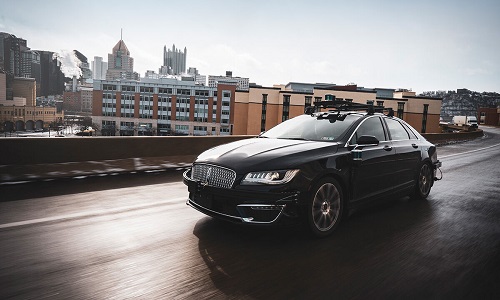By CRM staff
Toronto, Ontario – June 14, 2019 – When it comes to developing autonomous vehicles and getting them ready for the roads, OEMs are not fooling around. Carmakers have been forming partnerships with various autonomous start-up companies bringing them that much closer to the reality of self-driving cars.
Aurora’s Partnerships
Silicon Valley’s self-driving start-up company Aurora is receiving more funds and partnerships. This week, Fiat Chrysler announced that it would be partnering with the start-up, and Hyundai Motor Group announced that it is investing more funds into the company. A day before this announcement came, Volkswagen, one of Aurora’s first OEM partners ended its relationship with the start-up.
Aurora hasn’t disclosed the amount that Hyundai is investing but said the round has raised more than $600m.
With this expanded partnership Aurora will be expanding its research and development efforts to make it’s driving software work with Hyundai and Kia models. With this in mind, Hyundai is planning on launching a pilot fleet of autonomous taxis by 2021.
“Aurora is the leading innovator of self-driving technology and we look forward to building a stronger collaborative partnership with them. Working closely with industry leaders around the world will help us develop fully self-driving vehicles that are safe and innovative for our customers,” said Youngcho Chi, Hyundai president, and chief innovation officer.
A Done Deal – Almost
Volkswagen has left its partnership with Aurora, but it close to closing a deal with Ford on creating electric-car technology and self-driving vehicles. According to Volkswagen CEO Herbert Diess, talks with Ford is progressing well and close to being finalized. Diess shared that besides focusing on commercial vehicles and pickup trucks, the deal will also help both OEMs optimize investments in new technology.
Volvo and Uber Robo-taxis
Uber presented its latest self-driving vehicle model at its annual Elevate conference. The self-driving Volvo XC90 SUV is the first Uber vehicle that doesn’t need a driver. While Uber’s self-driving car program was suspended in 2018, after a vehicle killed a pedestrian, the company plans on bringing it back with a fleet of new vehicles in 2020.
“By the middle of the next decade, we expect one-third of all the cars we sell to be fully autonomous. Our agreement with Uber underlines our ambition to be the supplier of choice to the world’s leading ride-hailing companies,” said Håkan Samuelsson, president, and CEO of Volvo Cars.
Portuguese Island Powered by EV’s
An island off the coast of Portugal is forgetting about fossil fuels and moving onto a more unusual and new source of power, Electric Vehicles. Or at least their batteries.
In a project called Sustainable Porto Santo/Smart Fossil Free Island, launched by French car company Renault, the island is to be powered in the near future by secondary vehicles without burning any fossil fuel.
“This world-first smart island uses electric vehicles, second-life batteries, smart charging and V2G,” Renault stated in a press release. “This is to boost the island’s energy independence and stimulate the production of renewable energy.”
V2G stands for Vehicle to Grid. The idea is that electric cars plugged in can help power grids when they struggle at their peak.
“Our aim is to build a model that can be carried over to other islands, eco-districts and cities while consistently striving to achieve large-scale rollout of electric mobility solutions that are affordable for all,” Renault’s program director Eric Feuteun stated.
It is still unclear as to when this project will be complete.













































































